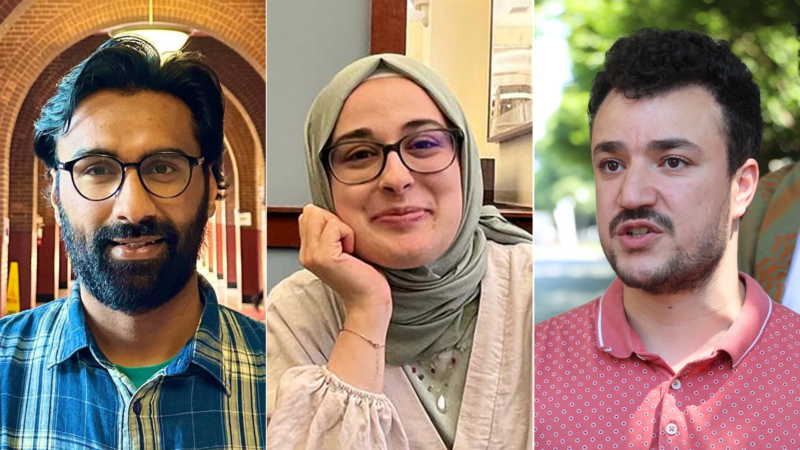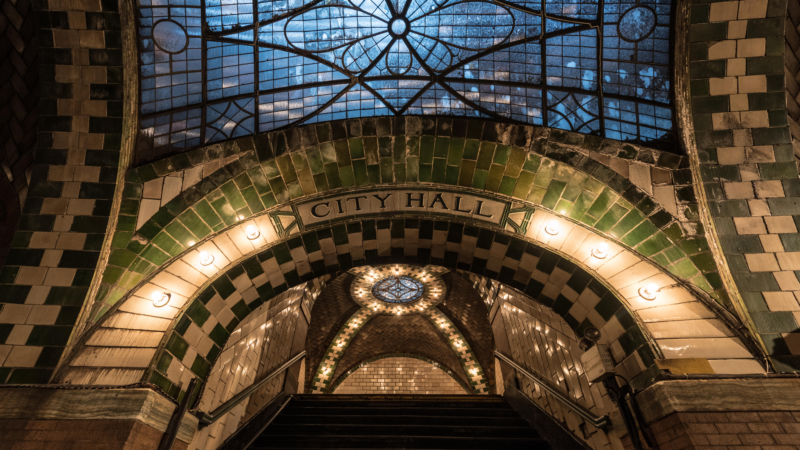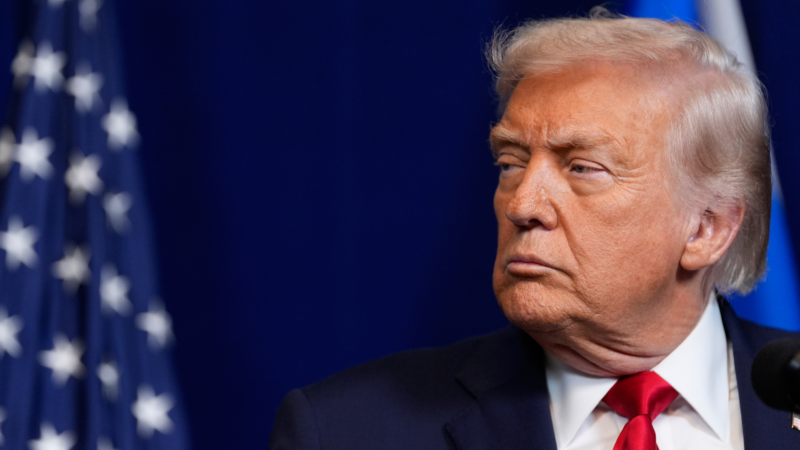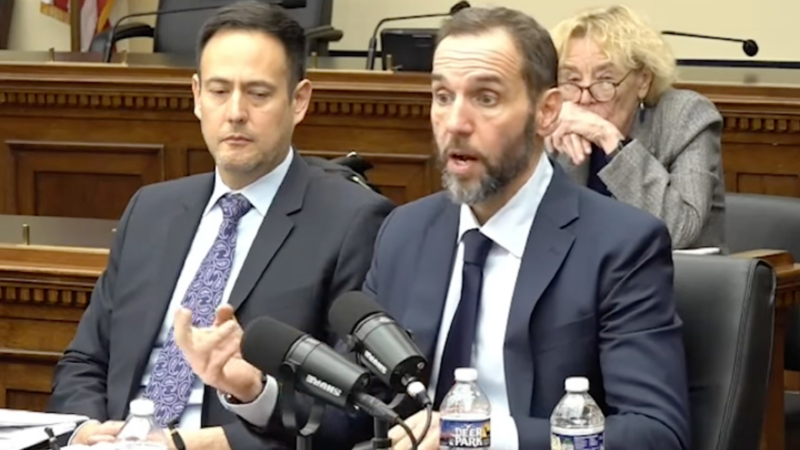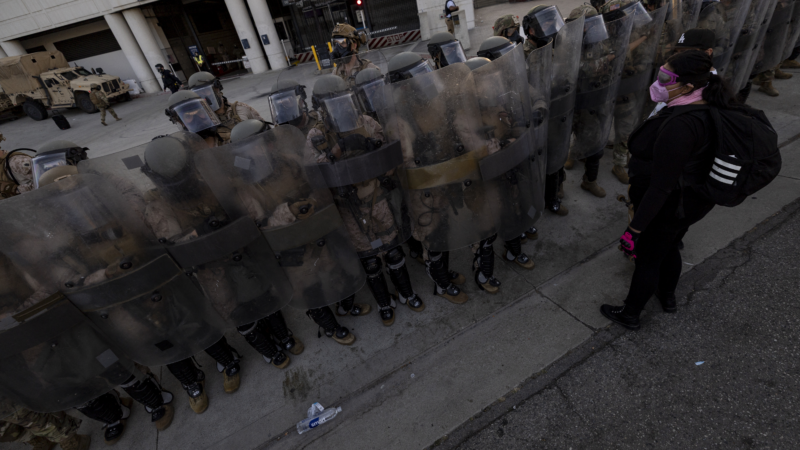Why is Trump sending immigrant university scholars to Louisiana and Texas?
After a dinner with his wife and friends, Mahmoud Khalil was arrested by immigration agents at his New York apartment on March 8. The next night, the Columbia University graduate student went to bed in a remote Louisiana detention center almost three hours from the nearest city. Mask-wearing agents picked Tufts student Rumeysa Ozturk up off the street near Boston, and less than a day later checked her into a private prison in rural, southern Louisiana. Georgetown scholar Badar Khan Suri was arrested near Washington, DC, and shipped first to Louisiana before being sent to a detention center in Texas.
Students and scholars that the Trump administration has arrested as part of the president’s promise to deport pro-Palestinian activists have been whisked in some case more than a thousand miles away – despite their lawyers’ attempts to stop it – to detention centers in the remote South that advocates have described as “black holes” where people are kept in deplorable conditions.
Louisiana, Texas and Mississippi are home to 14 of the 20 largest immigration detention centers in the country. Democratic and Republican administrations have long used them as a hub for immigrant detention.
Immigration and Customs Enforcement’s decision to quickly ship several of the academics arrested in the last few weeks to Louisiana has brought heightened awareness to how crucial the state has become in the process since Donald Trump’s first term. And it has revived concern about a longstanding practice called “forum shopping,” a strategy lawyers for the detained say the government is using to have these deportation cases heard before more conservative courts.

In court papers, government lawyers claim ICE sent Khalil, Khan Suri and Ozturk to Louisiana because there were no available beds or “detention space” in facilities closer to where they were arrested.
On Friday, the federal judge hearing a challenge to Ozturk’s arrest questioned the credibility of the government’s claim. In her ruling rejecting the government’s request to transfer the case to Louisiana, the judge noted that when the Turkish national was picked up outside Boston, there were available beds about a hundred miles away at an ICE facility in Maine.
And a lawyer for Khan Suri, a Georgetown University professor and Indian national, asked why – if the government was looking for bed space – her client is now sleeping on the floor.
In an interview with NPR, she said Khan Suri, who is now being held at the Prairieland Detention Center in Alvarado, Texas, is on a mattress in a common room because no beds are available.
“It’s pretty alarming,” said Edith Heilman, a legal director for the ACLU of Virginia, which has taken on Khan Suri’s case. “There appeared to be an effort to get him out of the state of Virginia.”
Brett Kaufman, an ACLU attorney, said sending detainees south is not about bedspace.
“It’s now a pattern, I think, that has become quite clear,” he said. “The government believes it has an advantage if it brings people down there.”
Lawyers for detained say the government is following a pattern
Today, Louisiana has the second highest number of detainees in the country after Texas. Of the roughly 47,000 people ICE was holding nationwide last month, more than 7,000 of them were in Louisiana, according to data from TRACreports, a nonpartisan firm that analyzes immigration data. ICE has nine detention jails in the state, most run by for-profit companies, and 23 in Texas.
Kaufman said shipping an immigrant far away for detention makes it harder to fight deportation.
“You take someone away from their community, from their family, from their lawyers,” he said. “It really is a huge, debilitating thing to not be able to walk into a facility and spend time with your client face to face.”

But legal experts have also noted another possible advantage for the government of sending people south. Several of the arrested academics have filed federal challenges to their arrests. If those cases are heard by a federal court in Louisiana, any appeals would be heard by the Fifth Circuit court of appeals, widely considered the most conservative in the country.
“If the Fifth Circuit was known to be particularly liberal and friendly to immigrants, there’s no way, in my view, they would have moved them there,” said Amanda Frost, a law professor at the University of Virginia
The Justice Department declined NPR’s request that it respond to the claims that the government is seeking out more favorable jurisdictions. ICE did not respond to a request for comment for this story.

Khalil, a lawful permanent resident who is Palestinian but was born in Syria, was arrested in New York and briefly held in New Jersey. But the government has since been arguing his lawsuit challenging his arrest should be heard in Louisiana because that’s where he’s now detained.
But last week, a federal judge ruled the case will be heard in New Jersey, where Khalil was when his lawyer filed her case. The government plans to appeal.
Lawyers for some of the other detained academics have been seeking similar rulings.
On Friday, a federal judge ruled that Ozturk will have her case heard in Vermont. Attorneys for Khan Suri have asked a federal judge to keep his case in Northern Virginia. In all of these federal cases, the academics are accusing the government of violating their constitutional rights.
Even as their suits against the Trump Administration move forward, the government is moving forward to try to deport them. Khalil is scheduled to appear before an immigration judge in Louisiana on Tuesday. The government is trying to strip his green card on charges his pro-Palestinian activism “aligned with Hamas terrorism.” His lawyers say the charges against him are baseless, and say officials have not provided any evidence to support them.
Zohran Mamdani sworn in as New York City mayor, capping historic rise
Mayor Zohran Mamdani took the oath of office in New York City after midnight Thursday. The city's first Muslim mayor, a member of the Democratic Socialists of America, has promised to focus on affordability and fairness.
Rising from the ashes, a symbol of hope at the Rose Parade
Survivors of the Eaton and Palisades Fires find healing and community working on a Rose Parade float to honor the lives and communities lost in last year's wildfires.
The history behind the NYC subway station chosen for Mamdani’s swearing-in
The city shut down the station in 1945 on New Year's Eve. Eighty years later, it's a symbolic venue choice for the incoming mayor's private swearing-in ceremony.
U.S. military strikes 5 more alleged drug boats, killing 8
The U.S. military says it struck five alleged drug-smuggling boats over two days. The attacks killed eight people, while others jumped overboard and may have survived. U.S. Southern Command did not reveal where the attacks occurred.
Capitol riot ‘does not happen’ without Trump, Jack Smith told Congress
Former special counsel Jack Smith also described President Trump as the "most culpable and most responsible person" in the criminal conspiracy to overturn the 2020 election results, according to a transcript of Smith's closed-door interview with the House Judiciary Committee.
Trump will drop push for National Guard deployments in Chicago, LA and Portland, Ore.
Courts blocked troops from deploying in Chicago and Portland, Ore., and the Los Angeles deployment effectively ended after a judge blocked it earlier this month.

